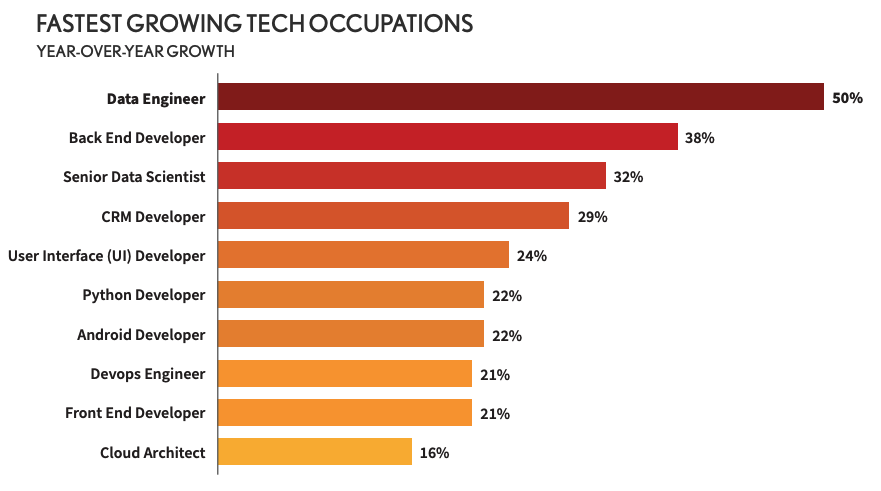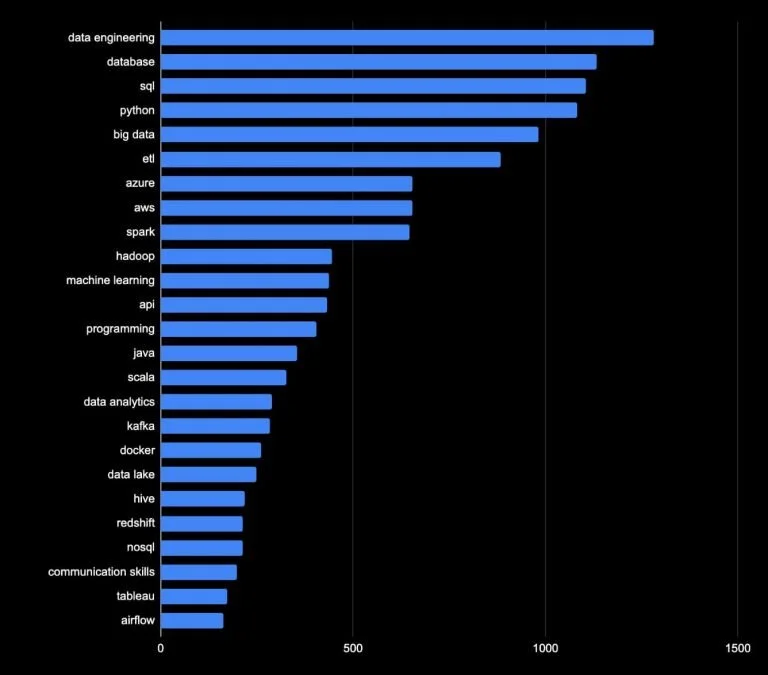A data prediction for 2021
Yes, it's that time of the year again: in the coming weeks ultra-scientific research institutes, cutting-edge management and innovation consultancies and basically everyone with a podcast are going to share their predictions about the most important technology trends for 2021. In a parallel universe called the real world, businesses have to make their own predictions for next year as well (for revenues, staffing, organizational changes etc.), they just prefer to call it planning.
Thinking about scenarios for what's ahead carries tremendous value, this has been known for long in the military even before Dwight D. Eisenhower famously said:
“Plans are worthless, but planning is everything”
It's about preparing for what is likely to happen and somehow for the unknowns that might impact our vague idea of how the future will unfold. The value I've mentioned is in part generated by the fact that anticipating certain future events today and acting in a controlled way so that these events result in positive (or not-negative) outcomes make a business more likely to survive the stormy seas of an economy shaken by the pandemic. But there is also value in the process itself, as it's an exercise in preparation.
So while these lists are being released in the upcoming weeks, the name of the game for the readers is finding patterns that help uncover the challenges on the radar and navigating through the various agendas inherently built into them. By doing this, one might arrive at something that's fairly likely to end up a real trend in the near future, not just an empty buzzword for the bin.
My obsession with predictions in general is a result of trying to identify the right sources to listen to. I am sure it's not just me constantly on the lookout for trustworthy and reliable content that helps me put my perception of the future into context. And I am also fairly confident that a lot of you, dear readers, are thinking about finding the right direction not just for your businesses, but for yourselves professionally and figure out where your career path is supposed to take you.
The Only Top 10 Game-Changing Sustainable Tech Future Innovation Agile Disruption Strategy Trend Report Workbook Executive Summary CEO Guide 2021 You Need - Download PDF here
Gartner is one of the first firms releasing their Top Strategic Technology Trends for 2021. The list of topics they've considered meaningful enough to make it to the list doesn't include blockchain! Wow, we're off to a great start. Sometimes I try to imagine how the season just before Christmas must be really difficult for blockchain enthusiasts and crypto fanboys. Every year they have to sit down and come up with new excuses why the past year was not the breakthrough year for their beloved technology and how the next one is going to be all different with mass-adoption, with unicorn valuations and maybe even with a valid usecase... but I digress.

Back to Gartner: "This year’s trends fall under three themes: People centricity, location independence and resilient delivery." - they say. They point out the following nine trends:
Internet of Behaviors
Total experience
Privacy-enhancing computation
Distributed cloud
Anywhere operations
Cybersecurity mesh
Intelligent composable business
AI engineering
Hyperautomation
For a CEO or COO who would like to enable their workforce to act upon these proclaimed tendencies, this would translate into: process digitalisation, improving access to data, data management processes and preparing for continued organisational readjustments. This is a pretty clear confirmation of the notion that COVID is merely accelerating existing momentums like remote working, data-led decision making and automation in business. What struck me when reading through the report was that data is very much in the center of all emerging trends coming our way, even more dominantly than at first glance. Duh.
But there is an observable shift toward data infrastructure-related investments that enable positive outcomes for the business as a whole instead of just doing machine learning l’art pour l’art to fuel a lighthouse project for AI or to "build a data science muscle".
This means that the nature of innovation is changing by moving away from the shiny and sexy, therefore the allocation of capital has to shift in parallel as a result. So here is a very real question that a lot of engineering managers and data team leaders ask themselves: what kind of competences does my team need in order to be able to deliver on the strategic expectations laid out the business plans for 2021?
Skilling up for 2021
"Knowing how to invest today means knowing what talent is needed."
Source: JF Gagne (CEO and founder of Element AI)
What I am seeing is one more pattern that corroborates the growing demand for data engineering talent, and confirms that there is no clear end in sight for it to drop. If the trends listed above turn into tangible initiatives within your company, and you have to start laying out a staffing plan for 2021, there is a very good chance you'll find the need for someone who understands tech infrastructure, the special nature of data and can deal with the increased amount of alignment meetings.
Maslow's argument remains true when it comes to my own biased POV,
"... it is tempting, if the only tool you have is a hammer, to treat everything as if it were a nail."
But as I always say, don't believe me, believe the numbers: below just two extracts of the latest researches showing the enormous growth of demand for data engineering skills:

Source: Dice Tech Job Report Q1 2020

Source: opendatascience.com
I expect more trend reports to come out in the next weeks underlining the need for data professionals in the context of the new normal (WFH, experiences and events going digital etc.) either directly or indirectly. It's a great sign for everyone who has already embarked on the journey of transitioning their careers into the world of data, and one more reason for rookies to focus more on engineering skills.
The data suggests that data engineering is here to stay, and having observed how data science has evolved as a profession, and especially how first-movers gained an almost unfair advantage compared to whoever tries to get into the game today... it is safe to say that the right time to start data engineering is yesterday. That's my humble prediction.